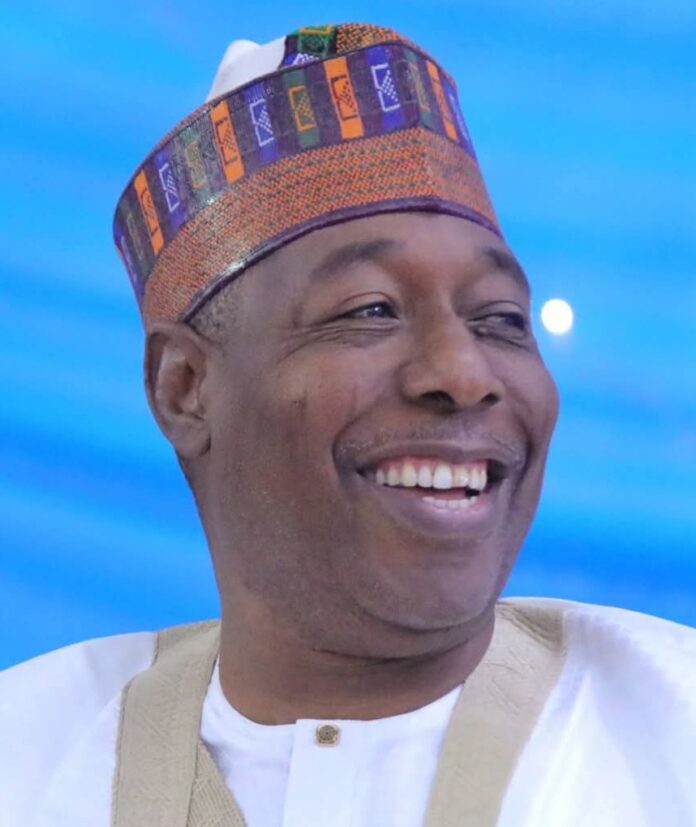By: Abdullahi Inuwa
In Nigeria’s political landscape, where power is often measured by authority and influence, His Excellency Professor Babagana Umara Zulum, the Executive Governor of Borno State, has emerged as a refreshing exception. What distinguishes him is not only his record of achievements but also the purity of his heart, his humane approach to governance, and, perhaps most tellingly, the warmth of his smile — a smile that reflects both resilience and hope for a state scarred by years of conflict.
For Borno, a region once synonymous with insurgency, displacement, and despair, Zulum represents a new chapter. His leadership, rooted in compassion and humility, has transformed him into more than just a governor. To many, he is a father figure, a beacon of hope, and a leader whose authenticity shines through every encounter with his people.
Zulum’s smile, often captured during official duties, carries meaning far beyond personal charm. It is a reassurance to his people that even in the darkest moments, light persists. In towns recovering from insurgent attacks, internally displaced persons’ camps filled with families yearning for stability, or schools rebuilt from rubble, that simple gesture embodies empathy, strength, and determination.
“It’s not just a smile,” says Musa Bukar, a resident of Maiduguri. “It’s proof that we still have leaders who genuinely care. When Professor Zulum smiles at you, you feel seen, you feel valued.”
Such emotional connection is rare in Nigerian politics, where detachment and distance often define leadership. But for Zulum, accessibility and sincerity remain at the heart of his governance style.
While symbolic gestures matter, Zulum has gone beyond appearances. His administration has aggressively pursued policies that address the realities of his people. Housing for displaced persons, investments in education, healthcare delivery, and agricultural development have been central to his governance.
In one instance, Zulum personally supervised the distribution of food and relief materials to families in rural communities. In another, he visited schools unannounced, engaging directly with students and teachers to assess their challenges. These acts reflect a governor determined to lead from the front, ensuring that his policies are grounded in the lived experiences of his people.
Under his leadership, Borno has seen the construction of thousands of housing units for displaced families, the rehabilitation of hospitals and schools, and infrastructural projects aimed at rebuilding communities shattered by conflict. Each initiative is guided by the principle that governance must be people-centered.
Despite holding the state’s highest office, Zulum has remained remarkably humble. Accounts abound of him driving without long convoys, engaging directly with farmers and traders, and even intervening personally in traffic situations. Such humility has endeared him to ordinary citizens, setting him apart from the archetype of the distant Nigerian politician.
“His Excellency doesn’t just talk about the people — he is with the people,” remarks Aisha Ibrahim, a schoolteacher in Biu. “He carries himself like a servant-leader, and that is why his smile feels so genuine. It reflects his heart.”
Zulum’s leadership has resonated far beyond Borno’s borders. Across Nigeria, his name has become synonymous with integrity, courage, and people-first governance. In a nation hungry for examples of accountable leadership, he embodies the qualities citizens yearn for: honesty, empathy, and effectiveness.
His story is frequently cited in discussions on governance reforms. Analysts highlight his ability to combine compassion with action, demonstrating that emotional intelligence is as vital as technical competence in leadership. International observers, too, have recognized his efforts, praising his resilience in steering Borno through one of the toughest recovery journeys in the world.
Zulum’s journey, however, has not been without challenges. The scars of insurgency remain visible in Borno, with communities still recovering from years of violence. Security threats persist, straining resources and testing leadership resolve. Yet, through it all, Zulum has maintained composure and positivity, inspiring confidence in both his administration and his people.
His optimism is not naïve but rooted in faith and determination. For him, leadership is not about perfection but about consistent effort, compassion, and the courage to stand with the people in good times and bad.
Perhaps what endears Zulum most is his ability to embody simplicity in the midst of power. His interactions are marked by respect and sincerity, his decisions by fairness, and his demeanor by humility. Those close to him often describe him as a man whose positive soul shines through every word and action.
His leadership proves that governance need not be alienated from humanity. Policies and projects, while essential, achieve greater impact when guided by compassion. In Zulum’s case, his pure smile and good heart serve as reminders that leadership is not just about commanding authority but about uplifting lives.
For a state that has endured so much, Zulum’s smile has become symbolic of a new dawn. It radiates confidence in Borno’s capacity to heal and rebuild. His administration’s achievements, coupled with his personal character, are laying the foundation for a legacy defined not only by physical development but also by emotional restoration.
In a world often skeptical of politicians, Zulum’s authenticity stands as a counter-narrative — one that redefines what it means to lead with both competence and compassion. His legacy will not only be measured in roads built or schools rehabilitated but also in the hope rekindled in the hearts of his people.
Conclusion
Professor Babagana Umara Zulum’s journey is proof that true leadership transcends titles and power. It is about character, compassion, and connection. His pure smile is not just a personal trait but a political statement — a reflection of his good heart and positive soul. In a state once defined by despair, that smile now symbolizes resilience, hope, and the promise of a brighter tomorrow.
Abdullahi Inuwa Social Commentator ainuwa303@gmail.com




